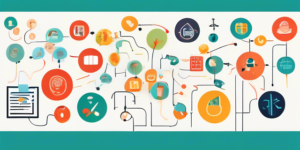Table of Contents
When should I start my NEET-MDS prep?
The answer to this question? As soon as you can. Yes, it’s a cliché, but clichés exist for a reason.
In our ultra-competitive world, early birds catch the worm. While some ambitious souls start their NEET-MDS preparation as early as the 3rd or 4th year of BDS, many of us kick off during our internship.
Starting early isn’t just about getting a head start; it’s about mastering concepts thoroughly. It gives you ample time to tackle more MCQs, ace mock tests, and fine-tune your performance. Plus, it helps you manage exam anxiety like a pro. Here’s a not-so-secret secret, that even a 12th-grader knows: You’ll outperform those who start preparing late.
Feeling down because someone you know began prepping in the 4th year? Don’t be. Many people ace the exam and land spots in top colleges even if they start during or after the internship.
Remember- The sooner, the better. So, dive in and give it your best shot!
To know if MDS is for you or nor, check out: MDS: Your Next Big Move or Just A Misstep
Is it better to prepare for NEET-MDS during my internship or to dedicate a full year solely to preparation?
Why is it absolutely brilliant to prep for NEET-MDS during your internship? Let’s break it down:
- Your memory is fresh from the 4th-year exams and clinicals, making retention of knowledge easier.
- You’ll breeze through complex concepts easier than a hot knife through butter.
- No waiting around for another year to kickstart your MDS journey—dive right into the action.
- You can seamlessly integrate exam preparation into the rhythm of finishing your internship.
Now, does that mean a gap year isn’t an option? Not a chance! Consider the advantages:
- You’ll have ample time to prepare thoroughly, resulting in a boss-level attempt.
- With focused dedication, you can deepen your understanding of crucial concepts.
- More mock tests mean more opportunities to fine-tune your exam strategy.
- You’ll have the chance to carefully evaluate your mistakes, ensuring ongoing progress and refinement.
And hey, let’s not forget, a gap year can also be a refreshing break for some ( no judgement!)
In the end, whether you integrate prep with your internship or dedicate a year to it, it’s all about crushing that NEET-MDS like a pro.
Is 3 months of preparation enough?
Gone are the days when you could prepare for NEET-MDS in just 3 months. The exam pattern and the nature of the questions have evolved significantly over the years. Now, more intensive preparation and a deep understanding of concepts are crucial to performing well in the exam.
The recent exams have shown a shift towards an integrated approach to questioning, focusing on real-life and clinical scenarios. To stand out in NEET-MDS, you need to adapt to this new format and ensure thorough, comprehensive preparation.
To know more about the integrated study approach check out: Mastering NEET-MDS Prep: An Integrated Study Approach
So, it is better to have at least 8-9 months of preparation before taking the NEET-MDS exam.

Can I secure an MDS seat with minimal preparation time?
‘Minimal preparation time’ means different things to different people. For some, it’s 3 months; for others, it’s 8 months, and a few might even call 2 years minimal. No matter how much time you have, you need to prepare smartly for the exam.
You can’t just crack open your BD Chaurasia textbook and start from page one, expecting miracles if you’re short on time. Think back to when our final year university exam schedule dropped—we sat down, prioritised what we could realistically cover, and gave it our best shot. The same strategy applies here. You can’t do it all, and don’t trust anyone who says otherwise. Work smarter, not harder!
3 important things to consider if you have minimal preparation time:
- You need to leverage your coaching centres, whether online or offline—let’s face it, they know what they are doing.
- Make the most of previous years’ question papers
- Identify the key topics that frequently come up and focus on them.
If you focus on these three strategies, your chances of securing an MDS seat are golden, even with minimal prep time.
Is reading Dental Pulse enough?
You’ll hear a lot of different answers to this question. However, according to a recent expert opinion, relying solely on Dental Pulse isn’t enough anymore. As I mentioned earlier, the NEET-MDS exam has evolved. It’s now more about case-based questions than straightforward ones. So, it’s time to broaden your horizons. Dive into other sources to stay updated on recent advancements and master the art of tackling case-based questions. Think of it as expanding your dental toolkit—more tools, better results!
How many revisions should I do before the exam?
At least one solid round of revision is a must beyond the first round of studying. Some toppers even go for a second and third round. In the first round of studying, you’ll spend time grasping concepts. A minimum of one revision helps you nail down how to approach and accurately answer questions. Sounds scary, right? But trust me, it gets easier as you go along. Don’t give up—it’s a process. Embrace the journey of understanding, correcting, and avoiding the same mistakes. Trust the process, and you’ll see the results!
How can an average student score high?
As an average student, I get where you’re coming from. Here’s the deal: focus on improving your memory retention skills. The golden rule—push through, even on days when studying feels like a grind. Consistency and persistence pay off big time.
5 ways to enhance your performance:
I. Solve more MCQs– keep a target of solving 150 MCQs a day initially, increase the number as you go on and challenge yourself.
II. Keep going back and revising the topics you cannot remember– remembering the extensive syllabus is not easy, so it is important to revise the difficult topics repeatedly.
III. Be familiar with dental instruments and materials– These topics can be quite confusing even for toppers. So, that’s where you have an extra edge. Get familiar with all the instruments in the clinical subjects and master answering the dental materials questions.
IV. Have a thorough understanding of clinical subjects– good clinical knowledge will help you to understand radiographs, MRI and blood tests and arrive at a correct diagnosis.
V. Don’t miss solving PYQs– they will guide you to know the types of questions asked, the difficulty level and the exam format so you don’t have any surprises on the exam day.
To wrap things up, whether you’re starting early or making the most of limited time, nailing the NEET-MDS is all about strategy, consistency, and smart work. Embrace your strengths, focus on key areas, and craft a study plan that fits your style.
Use all available resources, and don’t shy away from seeking help. Stay motivated, keep revising, and trust in your ability to ace it. You’ve got this! Happy studying and good luck!






Pingback: Should I take online/offline NEET-MDS coaching? Leveraging 10 online courses for MDS prep. - The Dental Scribble
Pingback: Should I join a coaching institute for MDS prep? List of 5 best institutes in India. - The Dental Scribble
Pingback: Mastering NEET-MDS Prep: An Integrated Study Approach - The Dental Scribble